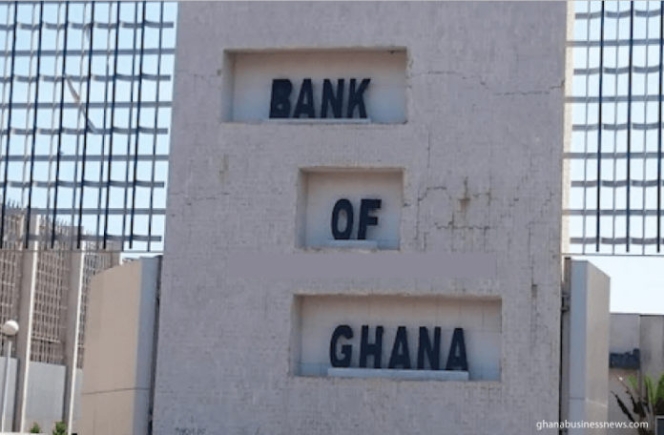Players in Ghana’s business community are mounting pressure on the rate-setting committee of the Bank of Ghana (BoG) to lower the policy rate to enable access to cheaper credit for operational growth.
The pressure follows recent improvements in the economy, including a decline in inflation, strong GDP growth driven by agriculture and services, a substantial trade surplus, and a relatively stable local currency.
The disinflation trend has strengthened, with headline inflation falling for six consecutive months to 13.7 per cent in June 2025—the lowest since December 2021. Provisional GDP data for Q1 2025 show real growth of 5.3 per cent, mainly driven by strong performance in agriculture and services. Non-oil GDP grew even faster at 6.8 per cent.
In May 2025, the Bank’s Composite Index of Economic Activity rose by 4.4 per cent, supported by robust consumption, higher trade volumes, increased cement sales, and a rebound in tourism.
Ghana recorded a provisional trade surplus of $5.6 billion in the first half of the year, over four times the surplus for the same period in 2024. Additionally, the current account surplus widened to $3.4 billion, while the cedi appreciated sharply—42.6 per cent against the US dollar, 30.3 per cent against the British pound, and 25.6 per cent against the euro.
In response, business groups such as the Ghana National Chamber of Commerce and Industry (GNCCI) and the Ghana Union of Traders Association (GUTA) have called on members of the Monetary Policy Committee (MPC), who began deliberations on the 125th edition this week, to ease the policy stance by at least 300 basis points (three percentage points) from the current rate of 28 per cent, which has been held steady for two consecutive sessions.
BoG Governor cautious
However, the Governor of the Bank of Ghana, Dr Johnson Pandit Asiama, at the opening of the 125th MPC meeting in Accra on July 28, questioned whether current macroeconomic conditions justified an adjustment to the monetary policy stance.
“As we commence our deliberations, the question before us is whether the current macroeconomic configuration warrants a recalibration of our monetary policy stance. With inflation expectations more firmly anchored, external buffers significantly strengthened, and public confidence improving, we must consider how best to support the recovery without compromising the hard-won gains in stability,” he said.
Dr Asiama also cautioned the committee to be mindful of potential risks, including a resurgence of exchange rate volatility, crude oil price hikes, and the potential inflationary impact of new taxes from the mid-year budget review.
“I encourage staff and MPC members to maintain a strong focus on these forward-looking risks, policy trade-offs, and the need to provide credible guidance to the market. Our mandate is clear: to maintain price stability while enabling the conditions for inclusive and sustainable growth,” he added.
GNCCI’s position
GNCCI President Stephane Miezan urged the central bank to consider a rate cut in light of favourable macroeconomic indicators, to ease monetary conditions and boost private sector growth.
“GNCCI has taken note of the favourable macroeconomic trajectory, including a consistent decline in headline inflation from 23.8 per cent in December 2024 to 13.7 per cent in June 2025, the appreciation of the cedi by about 42 per cent in the first half of 2025, growth in international trade and current account surpluses, and improved gross international reserves.
“In addition, the Chamber acknowledges the ongoing fiscal consolidation measures by the government, which have curbed excessive public spending and aided monetary stability,” Mr Miezan said.
While acknowledging lingering risks such as global policy uncertainties and potential 2024 election-related fiscal slippages, he argued that the current policy rate of 28 per cent, maintained since March 2025, continues to hinder access to affordable credit for businesses.
He said domestic firms had endured prohibitively high lending rates exceeding 25 per cent since September 2022, stifling investment, productivity, and business expansion.
“In light of these developments, the GNCCI proposes a reduction of the MPC rate by at least 300 basis points,” Mr Miezan added in a press release issued on July 28.
GUTA’s views
GUTA President Dr Joseph Obeng, who participated in the 124th MPC meeting as an observer, expressed optimism that the policy rate would be reduced to offer relief to businesses.
He argued that a rate adjustment would lower borrowing costs, stimulate production in the real sector, and support Ghana’s export-led growth agenda.
Dr Obeng added that the proposal also takes into account delayed monetary policy effects and seeks to shield the economy from global uncertainties.
